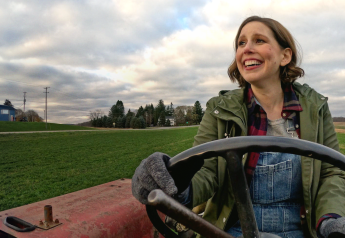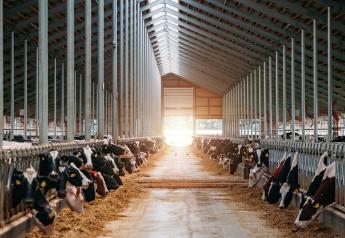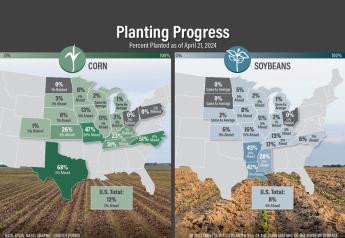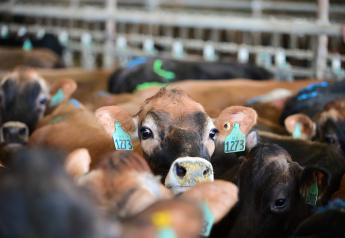Farmstead Cheese Venture Blooms in Middle Tennessee
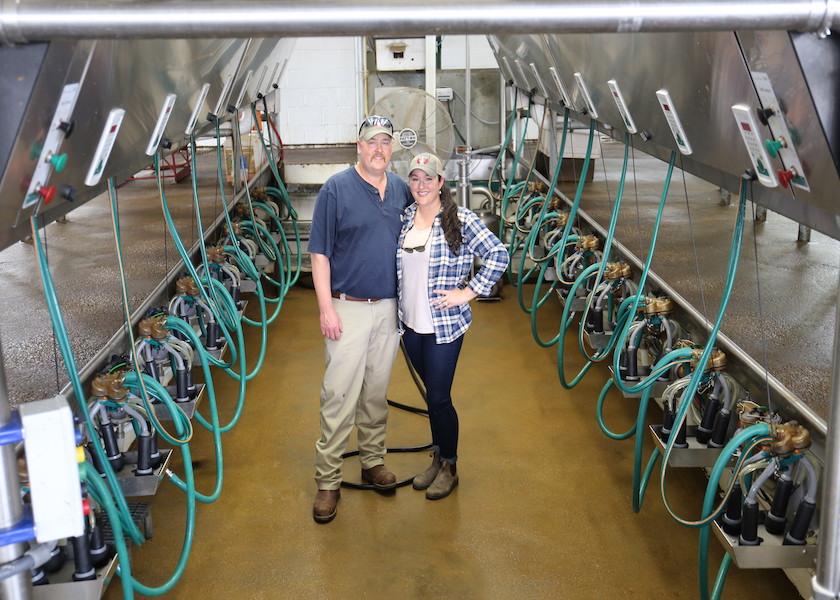
When the COVID-19 pandemic made its initial strike early in 2020, literally every dairy producer in the U.S. was left scrambling. It was a time of fear, disruption and great uncertainty.
But Tennessee dairy producers Brian and Morgan Flowers found themselves juggling another layer of complications. Together, they were in the throes of launching a decades-old dream of making and selling their own artisan farmstead cheese.
“We were finishing construction of the processing center, and suddenly no one was working,” Morgan says. “Progress came to a standstill for a couple of weeks, and we also had a hard time getting some of the last parts we needed. Fortunately, I had already quit my ‘day’ job, so I could devote full-time effort to finalizing the project and getting the equipment up and running.”
Dream Gains Steam
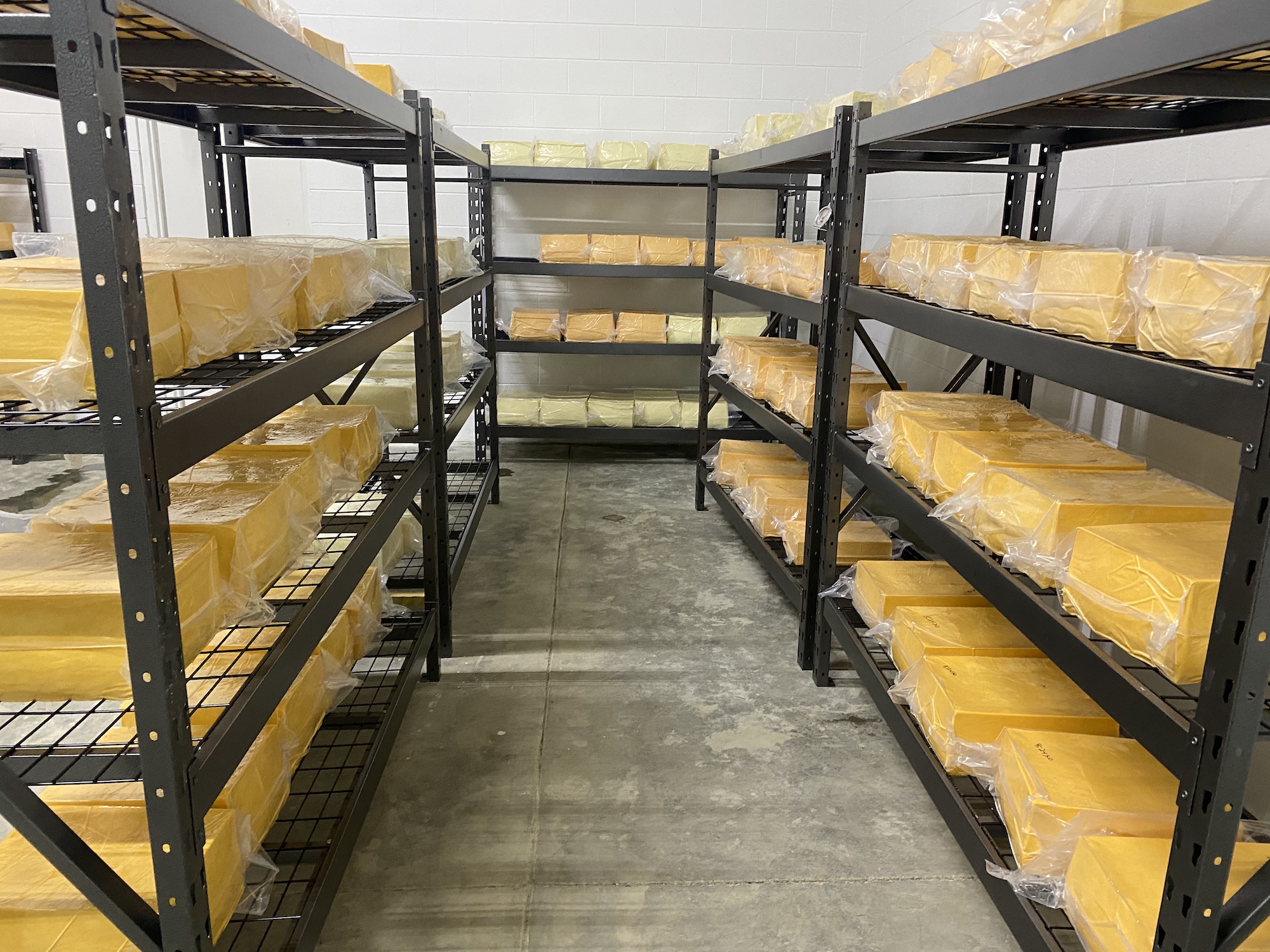
Ultimately, the Flowers were just a few weeks behind schedule. By early June, they’d made their first batch of mild cheddar, and Flowers Creamery became a reality.
The minimum aging time for that product is three months, so they continued to make cheese for many weeks before they were able to taste and assess its quality. “It was a huge relief when we finally got to try it and it turned out to be very good,” Brian says. “Honestly, it was the best cheese I every ate.”
A bona fide “cow man,” Brian anticipated that first bite of cheese his entire adult life. He grew up on his family’s dairy farm, began his own operation at age 20, and has been dairying for 25 years. All the while, he envisioned a full-circle enterprise that started with growing crops and ended with selling wholesome, nutritious food to happy customers. That dream really sprouted wings when he and Morgan were married six years ago.
Morgan, who is educated as an attorney, grew up in the city. “When I met her, she was telling me what kind of a lawyer she wanted to be, and I said, ‘No, you don’t want to be a lawyer, you want to be a cheesemaker,’” Brian laughes. “She’s taken to the profession really well.”
The Flowers currently have two dairy herds – a group of 30 Jerseys, whose high-component milk is used to manufacture the cheese; and 120 Holsteins, whose milk presently is sold in traditional commodity fashion. Now that the cheese enterprise is up and running, they have turned their attention to bottling non-homogenized, cream-line milk, with butter next on the list. Eventually, they hope to use 100% of their milk supply from both herds.
Helping Hands
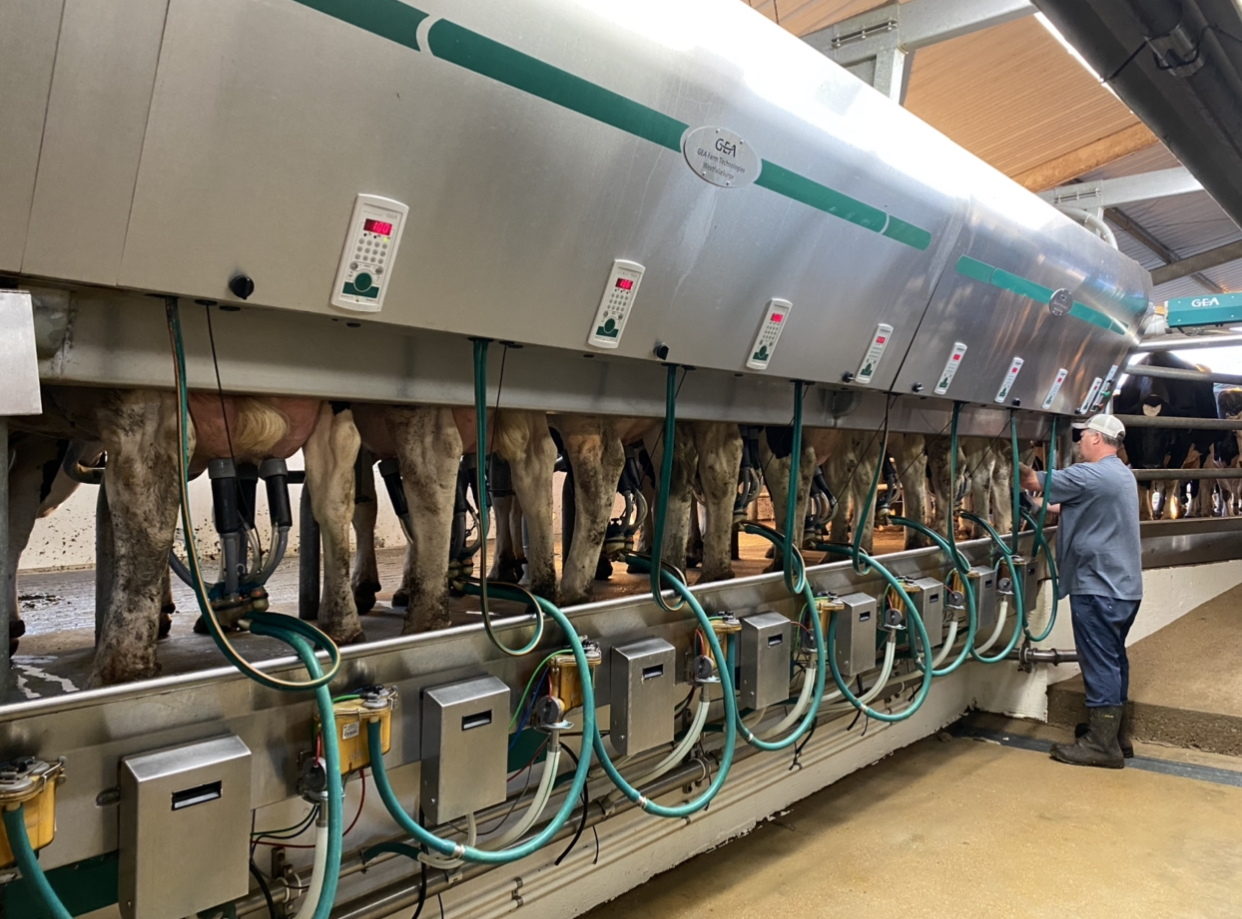
The advent of Flowers Creamery is the culmination of years of research and planning on the part of both owners. Brian attended a cheesemaking course at the University of California-Davis in 2010, and Morgan more recently has studied the craft at Mississippi State University and Western Kentucky University. They’ve also visited scores of other creameries and farmstead cheese operations and built strong relationships with consultants who helped them navigate the developmental steps.
One was John Bayless, a technician with dairy equipment dealer Kaeb Sales of Columbia, Ky. Bayless helped Brian design and install his double-8 parallel parlor eight years ago, and earned the Flowers’ confidence in his ability to configure equipment and carry out their design ideas. He also recently set up cow brushes in their barns and is assisting with installation of the bottling equipment.
“I think one of the main success factors for Brian and Morgan is they each capitalize on their own strengths, which are highly complementary” Bayless says. “Brian takes great care of the cows and the farm and sets them up with a tremendous raw product. Morgan is very adept at the business aspects of the creamery. Plus, they both have become experts at making cheese. But they’re also not afraid to engage the services of others to do the things they can’t or don’t have time to do.”
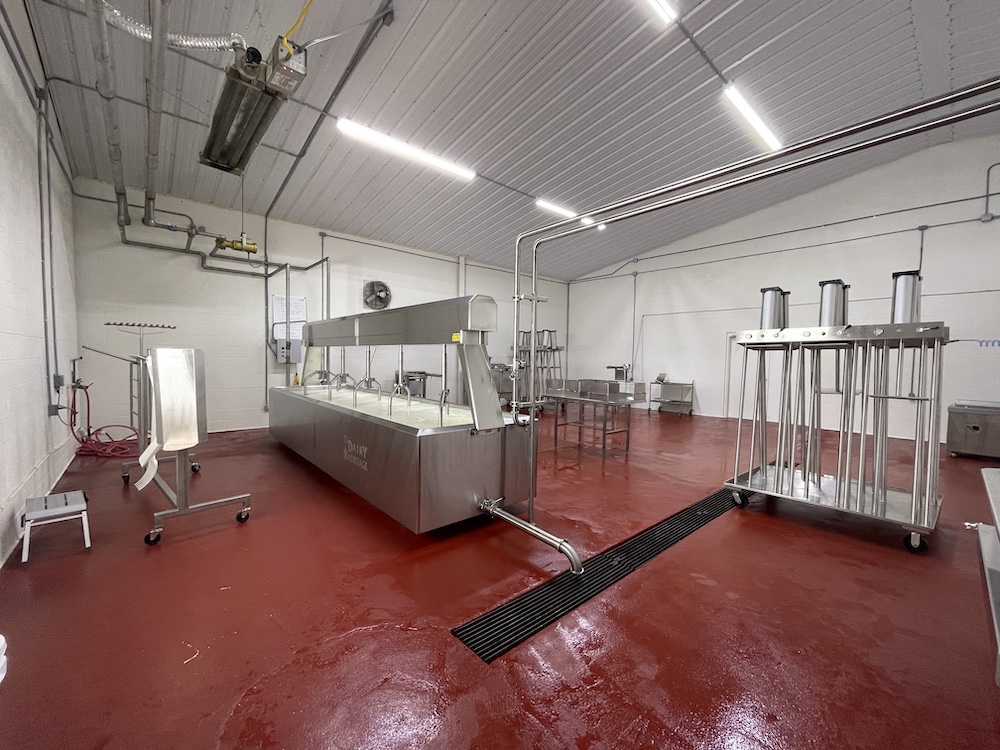
The Flowers were highly proactive in designing their facility to meet regulatory standards and comply with food safety requirements. By forging a relationship with the Tennessee Department of Agriculture on the front side of their project, they were able to gain advice on planning and protocols that will serve them well for years to come.
“Our quarterly state inspections go very well now,” Morgan says. “They know we care about quality and food safety because they’ve walked through the development process with us.”
The Tennessee Farm Bureau has been helpful in securing liability insurance for the Flowers, and a small percentage of their project capital was provided by state value-added food processing grants and a USDA Value Added Grant. The rest of the financial undertakings have depended on a healthy relationship with their banker.
“We have a lot of mutual trust and respect,” Brian says of their banker. “We now appreciate the value in running through different financial scenarios, working up projections and researching the fine details to create a solid business plan. It was time-consuming but also a great process of discovery.”
Representing a Changing Industry
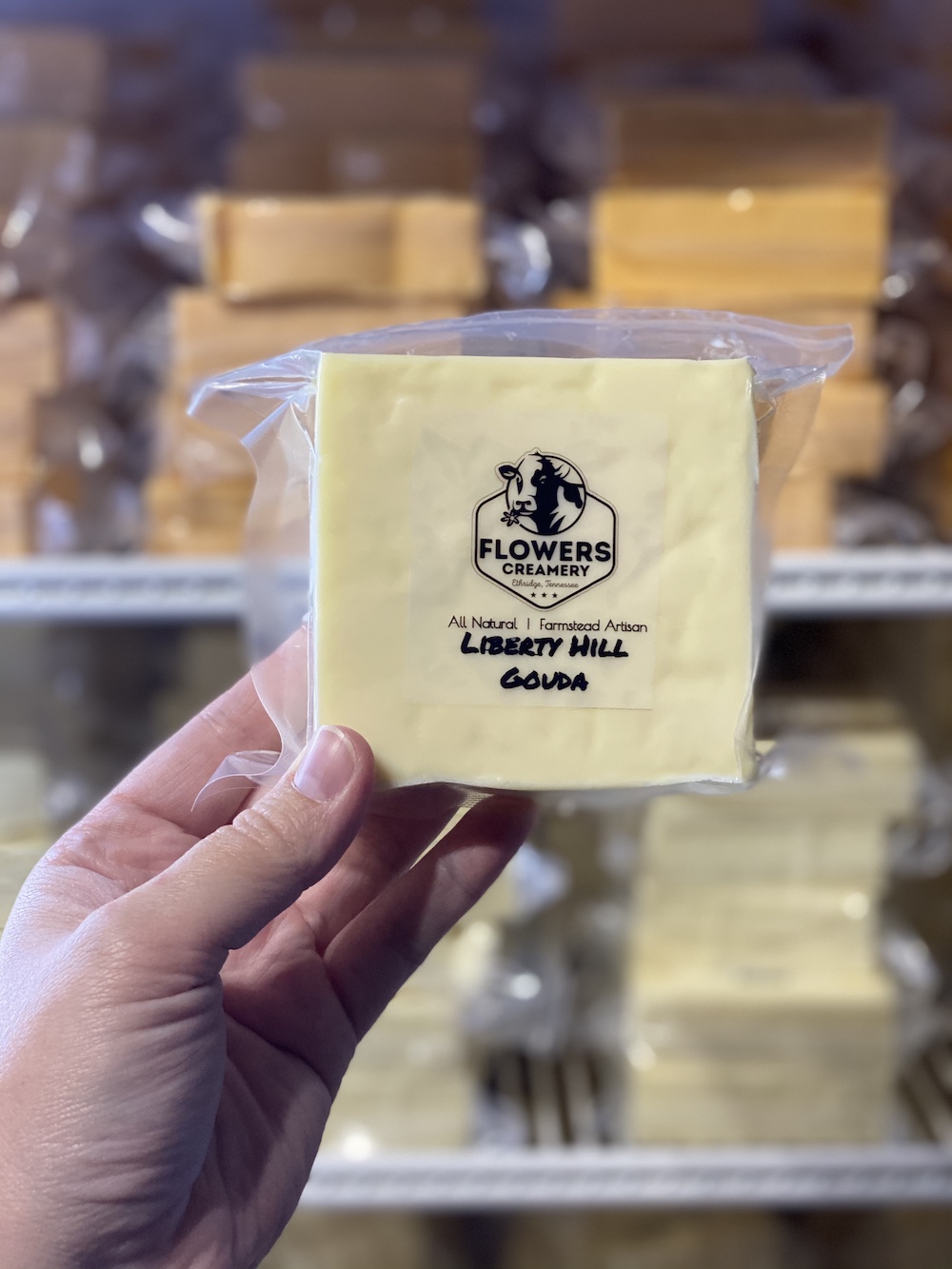
The Flowers also developed a marketing plan and had to consider how and where they would sell their cheese. Currently, it’s a four-way split between their on-farm store, local farmers’ markets, online orders and wholesaling to retailers. The wholesale/retail avenue currently makes up most of their sales, with many large grocery chains impressed with the quality and the local nature of Flowers Creamery products.
The pandemic, which initially hamstrung their launch, turned out to create some unexpected opportunities for the Flowers. With many social activities on lockdown, Morgan started promoting farm tours to homeschool groups that spread like wildfire via simple Facebook posts. Soon activity-hungry people from throughout the region were trekking to the farm, which is fortunately located about an hour south of the booming, foodie-centric metropolis of Nashville. Huntsville, Ala. is another metro area a similar distance away.
Morgan now personally conducts farm tours every Wednesday and Saturday, running through two rotations each day. Several individual tours have included more than 100 visitors, who also are drawn to the area by a local Amish community and welcome center.
The response to the tours has been almost universally positive. Morgan is intentional in emphasizing the care they take of their animals, noting with “pedicures” (regular hoof trimming), sprinklers and a gourmet diet, every day is “spa day” for the Flowers cows.
She also notes the stainless-steel pipeline that transports milk across the farmyard, directly from the milk house to the cheese plant. The absolute freshness and sanitation of that closed-loop system has resonated well with many visitors.
“I think the pandemic was a tremendous awakening for consumers in helping them realize how fragile the food system is,” Morgan says. “Our customers have been so grateful to be able to source local foods and are truly impressed with the ‘cow aspects’ of the tour.”
While their cows have access to picturesque grass pasture, Morgan also points out they can seek their own comfort. They often are happier lying under the fans in the summer, or out of the wind in the winter in their comfortable, bedded-pack barns.
“As an industry, we have so much work to do to convince people dairy products and practices are healthy, ethical and humane,” Morgan adds. “I am trying to do my part in that effort, here in my little corner of the world.”
Other facets of the dairy industry are evolving as well, and Bayless believes the Flowers are on the front edge of a trend toward producer independence. Throughout the southeast U.S. and in many other pockets of the country, trucking is becoming a concerning issue for small and medium-sized farms. For those who are passionate about remaining in the dairy industry, Flowers Creamery is demonstrating there are innovative avenues to stay viable.
“Brian is an excellent dairyman, and he enjoys milking his own cows,” Bayless says. “Not every dairy producer wants to milk thousands of cows. Manufacturing on-farm products is an alternative path to making a living with a smaller herd.”
While the start-up journey has been daunting at times, Brian has no regrets about taking the leap into processing on his farm. The most gratifying aspect is when he meets a customer on the street or at a farmers’ market. “They say things like, ‘Oh, you’re the Flowers. We love your products, and we tell all our friends and family about them,’” he says. “For me, that’s the ultimate reward.”
Morgan says she is most fulfilled by the difference she feels the farm and its products are making in dispelling myths and providing an authentic representation of animal agriculture. “We had a visitor this summer who staunchly proclaimed she was a vegan. By the end of the tour, she thanked me for enlightening her, and bought a whole bunch of cheese. I call that a huge win,” Morgan says.
The Cheeses of Flowers Creamery
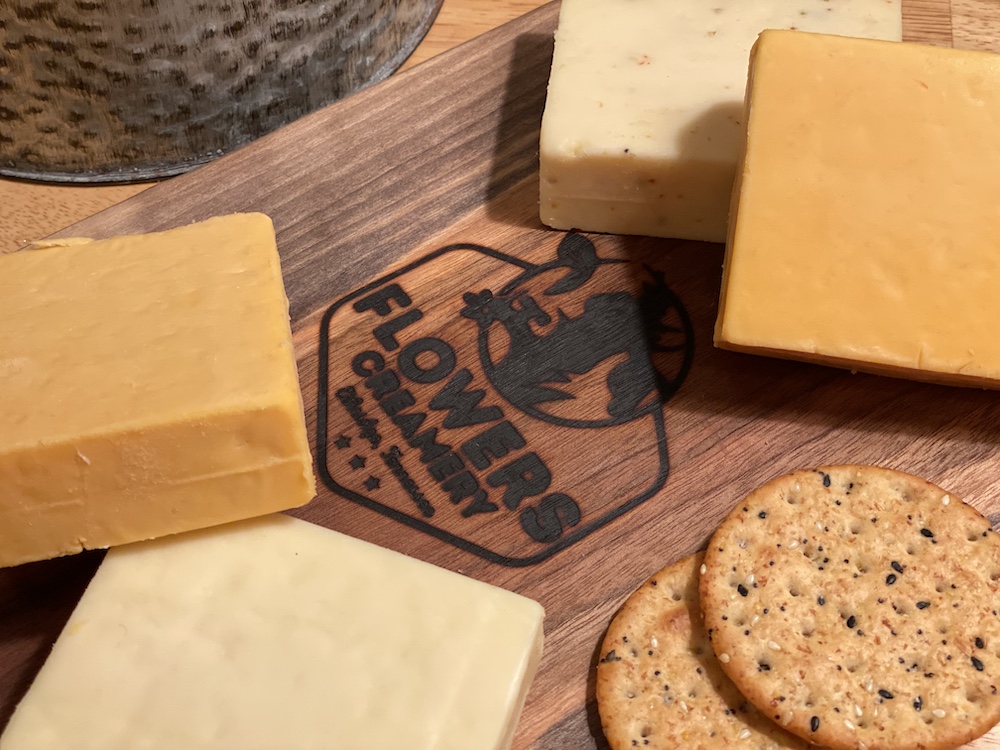
In less than a year, Brian and Morgan Flowers and their staff have launched a cheese-making enterprise crafting 10 varieties of farmstead artisan cheese and four flavors of fresh cheese curds. They are working toward their full production capacity of 30,000 pounds of cheese per month, currently making:
- Middle Tennessee Mild Cheddar
- Southern Sharp Cheddar
- White Cheddar
- Old No. 7 Monterey Jack
- Nashville Hot Pepper Jack
- Giles County Colby
- Liberty Hill Gouda
- Fresh Mozzarella
- Parmesan
- Baby Swiss
- Fresh cheese curds in Original, Nashville Hot, Jalapeno Ranch and Barbecue flavors
Many of the cheese names are tributes to their local Tennessee geography and culture. The Flowers have gained early notoriety for their Nashville Hot Pepper Jack, which regularly vies with Middle Tennessee Mild Cheddar for their #1 bestseller spot.
Retail and online orders are transported in insulated shipping containers and packed with frozen gel packs in warmer months. Morgan also delivers cheese in the local area two days a week. Flowers Creamery online sales can be accessed at www.flowerscreamery.com



